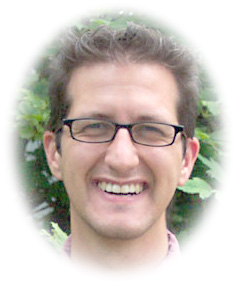|
What I Wish I Learned and
What I�m Glad I learned

by Jarrod Shapiro, DPM
Joined practice July 2006 of
John K Throckmorton, DPM, PC
Lansing, Michigan
After graduating residency and completing my first year in
practice, I felt my medical school education and residency training prepared me well for the "real
world". However, with the experiences I´ve had this past year in practice, certain aspects of my training have stood out in two
categories: those skills that I´m glad I learned, and those skills I wished I´d learned.
Skills I´m Glad I learned
Let´s start with category one, those skills that have held me in good stead:
1.
Rotations through general medicine – there´s a body attached to that foot, so to be a truly
effective foot and ankle physician, you need to understand how the rest of the body affects the foot and vice versa. Additionally,
complications happen, and you have to be able to handle them. If you don´t have them in your residency, push for general medicine
rotations.
2.
Thinking for myself – as a resident, I was pushed to think for myself, to decide how to treat
patients. I was taught to be a physician, not a technician. Successful surgery is at least 60% planning.
3.
Learning to code and bill – this one´s a doozy. During residency, we were taught correct coding.
As a practicing physician, you can not rely on your billing staff to get it right. If you don´t know how to code, then get
started now (no matter what year of residency you´re in).
4.
Examining the literature and understanding evidence-based medicine – why are you treating patients the way you do?
Do you prescribe calf stretches for your plantar fasciitis patients because the literature supports it or because your attendings told you so? How about
your bunion procedures? Trauma protocols? How about the prep you use preop? Do you have a rational thought process behind these and other
topics? Learn to read and analyze the literature. Like it or not, evidence-based medicine is here, and it´s mostly good for
medical care.
5.
The hunger to keep learning – this one´s ingrained in most of us. If you don´t keep learning,
you stagnate. A classic study showed that the longer physicians were out of residency, the less they knew about current treatments for
hypertension. Don´t be one of those doctors.
Skills I´m Glad I learned
What skills do I wish I´d have learned (or remembered)?
1.
Rotations through general medicine – I´ll say it again. You can´t have too many rotations
in gen med. I had quite a few rotations, but would have liked more.
2.
Rotations through cardiology – I´ve never done a dedicated cardiology rotation, which in many instances, would
have come in handy. Other rotations I´d like to have done: hematology, psychology (with an emphasis on pain management), more pediatrics, ICU
management, and endocrinology. Of course, there´s only so much time available, and you need that time to learn podiatric surgery. This is where self
study comes into play.
3.
Small business management – if you plan to practice outside of the large health organizations
like Kaiser Permanente, you´ll need some knowledge of business management. If you think you´ll just graduate from
residency, the patients will just roll in begging you for surgery, and you´ll magically make money hand over fist, then I have some Florida swamp
land to sell you (no offense to the Floridians among us!). You´ll learn marketing, business management, and staffing or you´ll never be
as successful as you can be. I personally have very little business background, so I pay attention to the good and bad business decisions
around me.
You´ll never be able to learn everything you want or should know. That´s why they call it PRACTICING medicine. Just keep your eyes open, take
notes, work hard and remember, you´ll never have all the answers. Good day.

Jarrod Shapiro, DPM
PRESENT New Docs Editor
[email protected]
|

